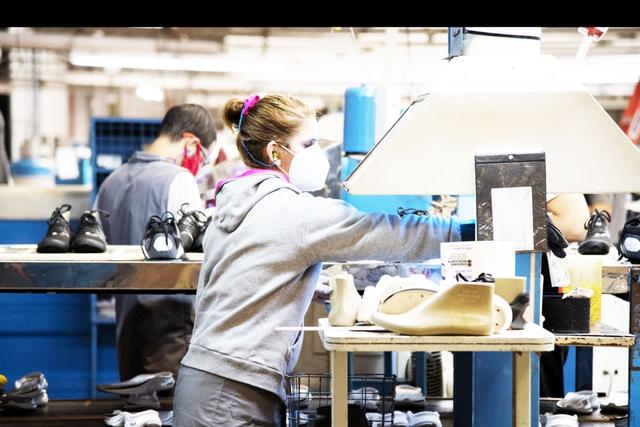By Manuel Tejo, from the DIB agency.
2021 was a year of incipient recovery for Buenos Aires SMEs and -after the unprecedented debacle caused by the coronavirus pandemic- since the sector hope to sustain growth, although they see a cloudy horizon due to possible setbacks in epidemiological matters and due to the debt with the International Monetary Fund (IMF).
After the resounding fall due to the health emergency caused by the coronavirus pandemic, the Argentine economy will have a growth in gross domestic product (GDP) of close to 10% in 2021, according to estimates from the national government.
In this framework, a recent report from the Argentine Confederation of Medium Enterprises (CAME) indicates that the national SME industry grew 17.6% last November compared to the same month in 2020 and 13.5% in the comparison with the same period of 2019.
The recovery situation has its correlate in Buenos Aires territory. In dialogue with DIB, the Deputy Vice President of the Economic Federation of the Province of Buenos Aires (FEBA) and CAME Press Secretary, Salvador Femenia, said that "in almost all activities we are verifying a very strong rebound and a recovery of employment ”.
“In the province of Buenos Aires, both commercial and industrial activity have had a recovery of their levels compared to the levels of the year 2020”, he indicated. Although he recalled that during the first year of the pandemic, due to the strong restrictions, "activity was all down."
Femenia highlighted that "there are items that stand out for the recovery they have had compared to the others" such as "paper, cardboard, publishing and printing", "clothing and textiles", "metallic, machinery and equipment", "wood and furniture” and “transport materials”.

"With the opening of activities, both the clothing part and school supplies and toy stores, in specific terms, have really had a remarkable growth," he said. And he specifically referred to the increase in sales of sportswear by pointing out that "people have recovered activity with great enthusiasm" and that "they are inputs that are being consumed above normal."
Femenia also said that in "the latest measurements we have today, the levels of 2019 are already being exceeded" and they hoped that "a horizon will be created to see a sustained growth curve."
For her part, the president of the Northwest Buenos Aires Business Nucleation, Carolina Olguín, divided 2021 “into two parts: before and after the release of circulation.” "Before with a strong retraction in sales and later with an uneven increase by sector," she explained.
The Nucleation covers 35 cities in the northwest of the province. The head of the same warned that the sectors that registered a "greatest recovery" in the region were "construction materials, field items, hardware stores, bars and restaurants."
“The ones that cost us a little more were bookstores, men's and women's clothing, service stations and leather goods stores. In those, the recovery is slower, ”Olguín told DIB.
Meanwhile, the president of the Union of Entrepreneurs of the Argentine Republic (UERA), Rodolfo Llanos, relativized growth and linked the "reactivation in some sectors" to the fact that "a lot of money was injected" by the campaign to legislative elections.
“Basically the activities that were working the most were the food businesses, the occasional clothing place and there was also a small reactivation in the youth sectors due to the activity generated by the services that stem from the e-commerce activities ”, he indicated.
The mystery of 2022
The year 2022 is still unclear for SMEs and businesses in Buenos Aires. Olguín, from Nucleamiento, maintained that the future depends "on two fundamental aspects": health, with fear of possible outbreaks of coronavirus, and the agreement or not with the IMF.
Femenia, from FEBA, added among the difficulties "a political climate that at this moment gives us some instability" and pointed out the need to reach "minimum agreements" between the different forces "in order to establish a scenario that really allows the investment".
He also referred to the problems of inflation and credit. “For now, we see the outlook with hope but it is a bit uncertain for us. Let's hope that some variables align, that the political clouds that weigh on the economy clear up," he wished.
For his part, Llanos, from the UERA, was more pessimistic. "In the entrepreneurial sector we envision a very difficult year because the tax burden continues to be tremendous, because bank rates are very high, because the merchant or entrepreneur has no way of obtaining financing," he listed among the problems.
The referent of the entrepreneurial sector also expressed his concern about the lack of employment and informal employment. “The final consumer, the worker, buys us. If there is unemployment, there is a drop in income, if there is unemployment, there are no people who can accumulate a small amount of capital to try to undertake on their own”, he added. (DIB) MT
Without mining or Portezuelo, a company that produces wine is born in Malargüe
Goodbye to Carlos Marín: this is the heritage and fortune left by the singer of Il Divo
Record of women affiliated with Social Security, but temporary and with low salaries
Ceviche to Recoleta and croissants for officials: the bet of the workers of Villa 31 to sell outside the neighborhood